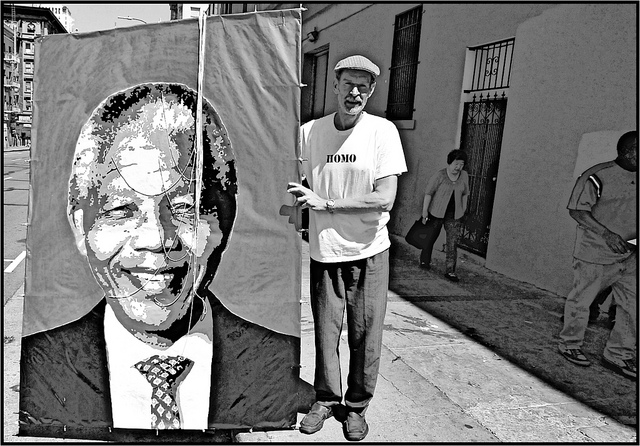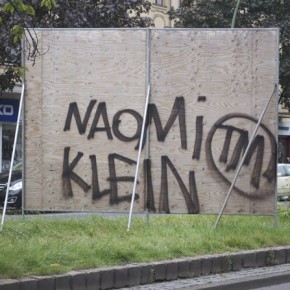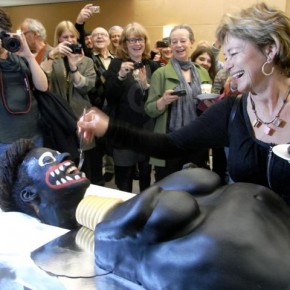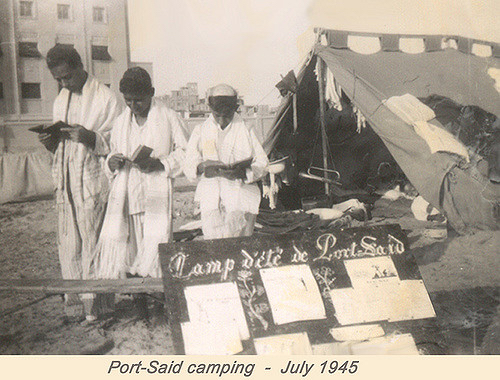It’s a refrain that has been heard for many years. It usually comes from supporters of draconian Israeli policies, a cynical question which lays blame for the occupation at the feet of Palestinians.The irony of the question lies in an ignorant view of who Nelson Mandela is, and how he became the face of post-apartheid South Africa.
Mandela, who until 2008 required a special waiver from the Secretary of State to enter the United States because he was designated a “terrorist” rose to that prominent position by leading the African National Congress in an armed struggle against the apartheid regime.
The image of the pacifist Mandela permeates much of western consciousness, but the simple fact is that if Mandela had not led armed resistance, he never would have had the credibility he needed in 1990, when he was released from nearly three decades in prison, to strike a peace with an apartheid regime that was already crumbling and doomed.
But the question regarding the Palestinians actually does have real meaning. Mandela was a unifying figure as apartheid ended, one who could bring together factions who had fought apartheid and sometimes each other.
Someone like that is indeed sorely needed by the Palestinians, a reality that was thrown once again into sharp relief in recent days.
Last week, Palestinian Authority Prime Minister Salam Fayyad was scheduled to deliver a letter from PA President Mahmoud Abbas to Israeli Prime Minister Benjamin Netanyahu that outlined Abbas’ demands for restarting talks with Israel.
Fayyad, who was not a part of writing the letter, refused to be the messenger and simply did not go. Other leading Palestinian officials delivered the letter.
Since then, reports have circulated that Fayyad and Abbas are not speaking to each other as a result of this latest spat.
You read that right. The PA’s President and Prime Minister have said “I’m not talking to you.”
One wonders if they are sticking their tongues out at each other as well.
It is, of course, not unusual for people living under military occupation to squabble among themselves. Indeed, as I mentioned, this was a distinct feature of South African resistance, and it can be found just about everywhere there is repression and resistance.
But the fragmenting of the Palestinian leadership has been a defining feature of Palestinian politics from the earliest days of this conflict, all the way back to the early 20th century.
The deep divisions among Palestinians today are most evident in the split between the PA and Hamas, and the fact that the long-promised reconciliation between the two factions is always just over the next hill, then the next, then the next….
But there have been so many internal divisions, with various factions moving in and out of the Palestine Liberation organization over the years (the PLO is an umbrella organization, despite its dominance by the Fatah faction for most of its existence.) More recently, Abbas’ leadership has faced challenges from Mohammed Dahlan, who once headed Fatah’s Gaza faction, and from a younger generation that is, to say the least, dissatisfied with the performance of the “old guard” leaders.
Then we see a spectacle like this one. It is easier for Netanyahu to get a call through to either the PA president or prime minister than it is for one of them to get the other on the phone.
It is the height of absurdity. In the meantime, Fayyad and Abbas can both sit in their separate Ramallah offices and rail to reporters about Israel waving a hand magically making three more settlement outposts, illegal even under Israeli law, suddenly legalized.
Perhaps, like Mandela, the leader the Palestinians need is in an Israeli jail. Marwan Barghouti, convicted by Israel of murder in a trial that was dubious in procedure and more so in terms of legitimacy, is seen by many as the one leader who could bring Palestinians together.
Whether Barghouti is the answer or not, the dearth of real leadership is crippling the Palestinian future. That serves no one’s interest, and it behooves both Palestinians and Israelis to change this situation.
Ultimately, though, one of the few things the Palestinian people can exercise some control over is their own leadership–albeit a limited control within the confines of Israeli arrests of so many Palestinian community leaders. One must hope that they exercise more of that control in the future.
But that is the prerogative of the Palestinians, not Israel. As far as the outside world is concerned, we need to recognize that a weakened and fragmented Palestinian people will not lead to peace, but further conflict.
Now, as the PA grows more repressive (see this article regarding the restrictions they have placed on internet access to news sites critical of Abbas) and the gulf between Fatah and Hamas widens, the failed Palestinian leadership seems to be feeling itself on much shakier ground.
They may well have good reason to. And while Israel and the US will go to great lengths to prevent fundamental change in Palestinian leadership, they may well find that their own failure to do that might lead to a better future for all of us.
Photograph courtesy of Confetti. Published under a Creative Commons license.






Seems to me that Israeli prisons and Palestinian graveyards are full of potential Mandellas and Ghandis and various other possible “partners for peace.”
You are missing the 3 decades in prison part that Mandela had.
Those 3 decades allowed him to examine the situation more logically.
The majority of the Palestinian leaders (not all) are not in the logical stage and will never reach it, and that’s why “Palestine” doesn’t have its own Mandela (mentioning Gandhi is pointless as he advocated a peaceful only solution, which is the complete opposite of the attempts by the PLO/Hamas).
In fact, Arafat was given a chance to be the Mandella equivalent in 2000, he rejected the peace proposal, did not give a counteroffer, and started another intifada instead.